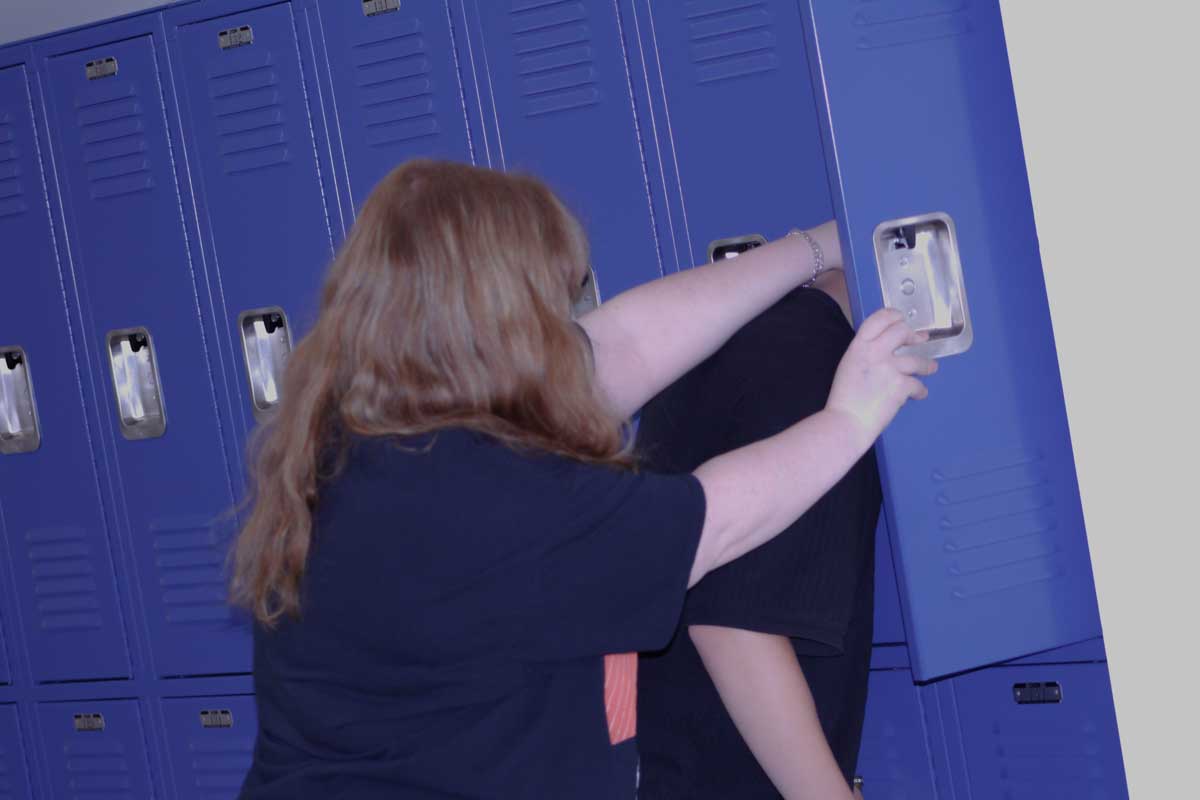
 In the 25/26 school year, things have started to tighten up as Fayette County implements new laws for the other surrounding schools. Signed by our governor Andy Beshear, Senate bill 181 limits student-teacher contact. Senate bill 73 and 19 which are giving students a moment of silence for one minute during the beginning of the school day and laws combating sextortion. So, how did these new laws come to be passed?
In the 25/26 school year, things have started to tighten up as Fayette County implements new laws for the other surrounding schools. Signed by our governor Andy Beshear, Senate bill 181 limits student-teacher contact. Senate bill 73 and 19 which are giving students a moment of silence for one minute during the beginning of the school day and laws combating sextortion. So, how did these new laws come to be passed?
Limited student-teacher contact-
Under the new law, employees are not allowed to text or direct message students on personal phones or through social media messaging without special parental permission. This includes situations outside of school, such as church groups, volunteer activities, or even asking a neighbor to babysit or mow the lawn. A 2022 Herald-Leader investigation found of the 194 teachers who lost their licenses in some way over the previous five years, 61% were related to sexual misconduct. In sponsoring the Bill, Sen. Lindsey Tichenor said the goal is to outline clear guidelines for electronic communications between school staff, volunteers and students to protect student safety. If a parent wishes to permit certain exceptions, they must complete a consent form available on the district website. The forms are intended for special cases — such as a neighbor texting a student to babysit. Violations could trigger a district investigation. For teachers, it could also involve the state Education Professional Standards Board.
Our Moment of Silence Bill-
In 1985 the moment of silence legislation was first brought up in the Alabama case of Wallace v. Jaffree, the Supreme Court struck it down as unconstitutional.  The Court then proceeded to explain how such legislation could be made to fit within the rules set by the U.S. Constitution. This was done by showing how a moment of silence does not specifically promote religion, but promote children in public schools to improve the morals, ethics, and values in the students’ lives. If they will use this moment of silence as an opportunity to learn how to stop to think for a moment, it can have a very positive effect later on in their lives, when they are forced to make important decisions. Therefore, it can be argued that it does not infringe on the separation of Church and State. Many states took the proposed advice and either reconstructed or instituted lawful moment of silence in their public schools each day. To date, more than half of the states in the U.S. have approved a moment of silence in their public schools. For some, it is mandatory for the schools across their state to hold a moment of silence daily. For others, it has been left to the discretion of the individual districts if they would like to implement this in their schools or not. Rising interest in implementing moments of silence in the nation’s public schools reached new heights in the aftermath of September 11, 2001. Barry Lynn, executive director of Americans United for the Separation of Church and State, is quo/ted in The Post to have said, “These bills were clearly something that was a popular first response to the crisis of our nation.” When Governor Bob Taft signed Ohio’s bill allowing a moment of silence, it enacted “that the state allows one minute daily for students to reflect, meditate or pray” (Sidoti). It has been proven statistically that moments of silence in the schools lower juvenile violence. That is regardless of how the students choose to engage themselves during this time.
The Court then proceeded to explain how such legislation could be made to fit within the rules set by the U.S. Constitution. This was done by showing how a moment of silence does not specifically promote religion, but promote children in public schools to improve the morals, ethics, and values in the students’ lives. If they will use this moment of silence as an opportunity to learn how to stop to think for a moment, it can have a very positive effect later on in their lives, when they are forced to make important decisions. Therefore, it can be argued that it does not infringe on the separation of Church and State. Many states took the proposed advice and either reconstructed or instituted lawful moment of silence in their public schools each day. To date, more than half of the states in the U.S. have approved a moment of silence in their public schools. For some, it is mandatory for the schools across their state to hold a moment of silence daily. For others, it has been left to the discretion of the individual districts if they would like to implement this in their schools or not. Rising interest in implementing moments of silence in the nation’s public schools reached new heights in the aftermath of September 11, 2001. Barry Lynn, executive director of Americans United for the Separation of Church and State, is quo/ted in The Post to have said, “These bills were clearly something that was a popular first response to the crisis of our nation.” When Governor Bob Taft signed Ohio’s bill allowing a moment of silence, it enacted “that the state allows one minute daily for students to reflect, meditate or pray” (Sidoti). It has been proven statistically that moments of silence in the schools lower juvenile violence. That is regardless of how the students choose to engage themselves during this time.
Sextortion Laws-
On February 28th 2025, Elijah “Eli” Heacock, a 16-year-old Caverna High School student died from suicide after falling victim to what investigators believe was an online sextortion scheme. Federal and local authorities found evidence the teenager was targeted by criminals who used AI-generated explicit images to demand $3,000. Following Eli Heacock’s death, Kentucky lawmakers moved quickly to advance legislation making sextortion a felony and establishing penalties for those convicted. Representative Steve Riley, who represents Barren County in Frankfort. Spoke passionately about the case on the Kentucky House floor on March 7. He had spoken directly with Shannon Heacock after her son’s death. “There are real, tangible solutions that do exist that are being deployed today that can help to prevent this kind of misuse,” The bill has now passed both chambers of the Kentucky legislature and awaits Governor Andy Beshear’s signature to become law.